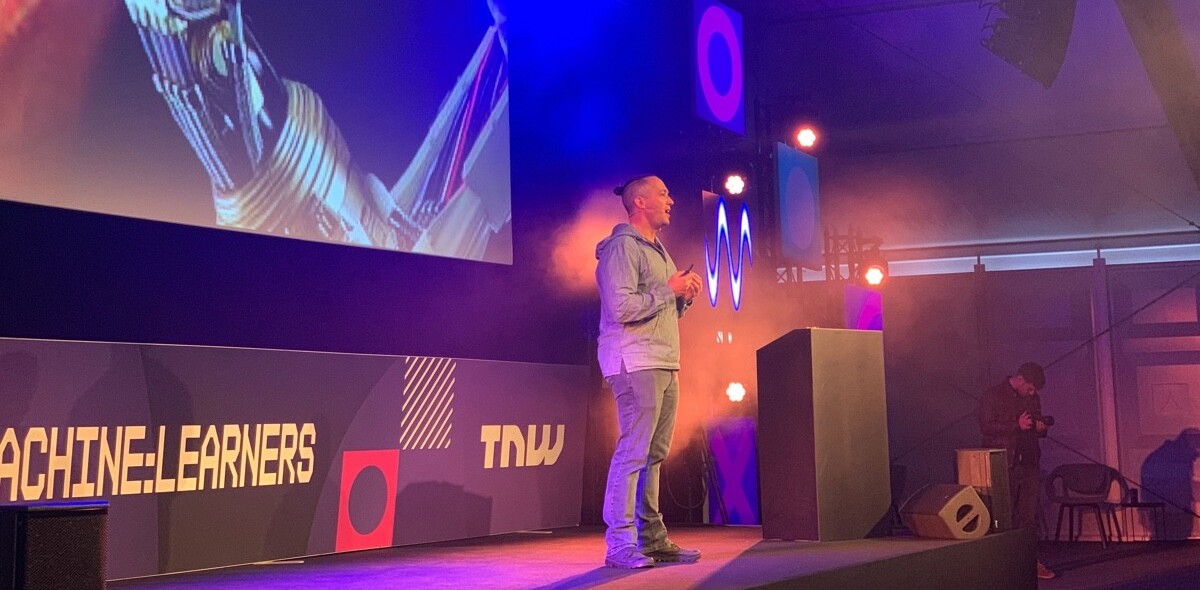
Kaspar Korjus, the Founding Managing Director of Estonia’s e-Residency program, shared his futuristic vision on how to get nation states to digitize with attendees of TNW2019 today. The private sector has set the pace for technological transformation, and Korjus thinks it’s time for nation states to catch up.
“We’ve given governments millions of dollars to digitize, but they always seem to fail,” Korjus said. But what if they didn’t? Having been part of Estonia’s pioneering digitalization of government services, Korjus is a big believer that nation states can adapt to the new technological climate — and that when they do, it will bring further prosperity across the globe.
“I believe nations are becoming independent from their own physical land, citizens, services, and revenue to start serving humanity like never before,” Korjus said.
So how will we reach Korjus’ utopian vision?
The 10 phases towards tech-driven nation states
The first out of the 10 phases for tech-driven nation states that Korjus foresees is activating ‘a digital mode.’ This basically means the governments can recognize you online — because digital IDs are the cornerstone of modern states.
Building on top of that, nation states enter the next phase: opening their ‘app store,’ bringing a selection of services to their citizens, like filing for benefits and taxes online. Korjus says this bit can be tricky in the beginning. It took Estonia 5 years to get the public on board after the app store was launched in 2002.

From there, they can move on to ‘empowering the data network.’ Estonia currently has a system of decentralized data centers that ensure security as well as accountability. Every citizen can access logs of which government bodies and companies view their personal information. In phase four, government services become invisible and provide everyone with the benefits they’re entitled to automatically.
Right now in Estonia, when you have a baby, you automatically get child benefits. The user doesn’t have to do anything because the government already has all the data to make sure the citizen receives the benefits they’re entitled to.
Getting futuristic
Countries have started on most of the latter phases Korjus has sketched out, but they’re still a long way from achieving them completely. But when they do, Korjus believes we’ll see the rise of ‘nation as a service’ where nation states will compete to provide their users with the best service possible. But what are the phases leading up to that?
Phase five will be about standardization of how we interact with robots and weave them into our lives, which some states have actually started on already. And once you have all these services in place, why should you limit yourself to your own citizens? Korjus says this was the drive behind the e-Residency program, when Estonia opened up its services to the world — it’s clear nation states can enter the futuristic arena of digitization.
The logical step after “becoming borderless” is “tokenizing the ecosystem” — like launching a government ICO — and ‘‘reaching immortality” by decentralizing a nation’s servers and store their data in data embassies around the globe. This ensures the system will survive independently from the physical country. This will be topped off with true AI integration.
Then the countries of the world can reach the ultimate goal: including everyone via ‘Nation as a Service.’ Governments will be able to share the application layer of their services. With this, Korjus hopes people will have better access to governmental services, no matter where they live, as they’ll be able to become e-citizen of pretty much any country in the world — ensuring quality of services through competition.
“This will be powerful because it will make it less important where you come from in terms of having a good life. Right now, it’s a lottery where you are born, but this could make the world much fairer,” Korjus concluded.
There’s plenty more where that came from. Check out the official schedule of TNW2019 to discover the keynotes you don’t want to miss, and watch them on our live streams.
Get the TNW newsletter
Get the most important tech news in your inbox each week.




